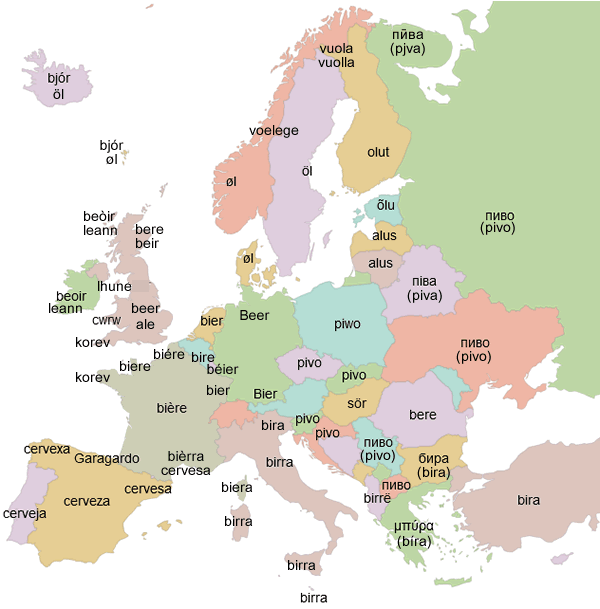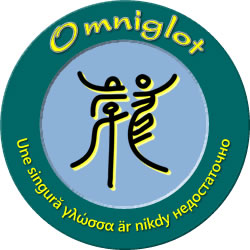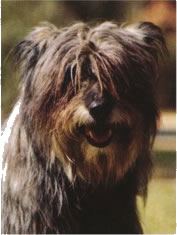The Irish word ceolchoirm [ˈcʲolˠ.xorʲəmʲ] means concert. It is made up of ceol (music) and coirm [korʲəmʲ] (feast, banquet, ale, beer). There are similar words in Scottish Gaelic (cuirm-chiùil), and Manx (cuirrey kiaull) [source].

The word coirm comes from the Old Irish word coirm (ale, beer), from the Proto-Celtic *kurmi (beer). Words for beer in the Brythonic Celtic languages come from the same root: cwrw in Welsh, and korev in Cornish and Breton [source].
The Latin word cervēs(i)a [kerˈu̯eː.si.a], which means beer made of wheat, especially of higher quality, comes from the same Proto-Celtic root, as do words for beer in some Romance languages, including cervexa in Galician, cervesa in Catalan and Occitan, cerveza in Spanish and cerveja in Portuguese [source].
From the same Proto-Celtic root we get the French word cervoise [sɛʁ.vwaz], which was a kind of ale or beer made from barley or wheat and without hops during the Middle Ages [source]. The archaic Italian word cervogia [t͡ʃerˈvɔ.d͡ʒa] (beer, ale made from barley or oats) was borrowed from the Old French cervoise [source].
The usual French word for beer is bière [bjɛʁ], which was borrowed from the Middle Dutch bier/bēr (beer), from the Old Dutch *bier, from Frankish *bior (beer), from the Proto-Germanic *beuzą (beer) [source].

Words for beer is some Germanic languages come from the same root, including Bier in German, bier in Dutch, and beer in English [source].
The Italian word for beer, birra, was borrowed from the German Bier, and the Greek word μπίρα (bíra – beer, ale) was borrowed from Italian, as were words for beer in Arabic, بِيرَا (bīrā), Maltese, birra, and Turkish, bira [source].
The Irish word beoir (beer) comes from the Middle Irish beóir (beer), from Old Norse bjórr (beer), which also has descendents in Scottish Gaelic (beòir), Manx (beer), Icelandic (bjór) and Faroese (bjór) [source].
Another word for beer or ale in North Germanic languages is øl (in Danish, Faroese, Norwegian) / öl (in Swedish and Icelandic). This comes from the Old Norse word ǫl (ale, beer), possibly from the Proto-Norse ᚨᛚᚢ (alu – ale), from the Proto-Germanic *alu (beer, ale), from Proto-Indo-European *h₂elut- (beer) [source].
Words for beer in Finnic languages possibly come from the same Proto-Germanic root, including õlu in Estonian, olut in Finnish, Igrian, Karelian and Veps, and oluq in Võro [source].
In Slavic languages words for beer come from the Proto-Slavic *pȋvo (drink, beer, beverage), including пиво (pivo) in Russian, Rusyn, Ukrainian, Bulgarian, Macedonian and Serbian, pivo in Slovenian, Czech and Slovak, and piwo in Polish and Sorbian [source].
Here’s a map of words for beer in European languages:

Source: https://ukdataexplorer.com/european-translator/?word=beer







